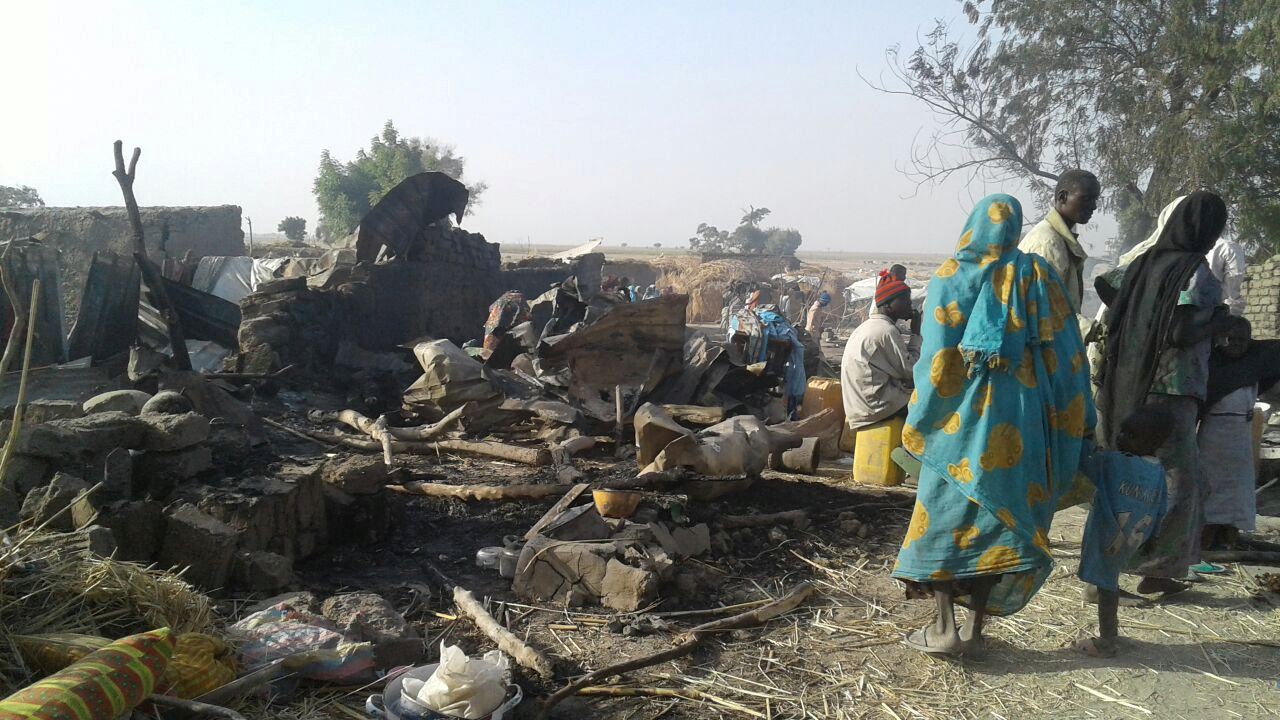
By Ola Lanre and Abraham Achirga
DAPCHI, Nigeria (Reuters) – Islamist militants freed scores of kidnapped Nigerian schoolgirls on Wednesday, driving them back into the town where they had been captured a month ago.
The captors gave no reason for their release, which triggered celebrations and tears, but the government denied that a ransom had been paid. Several of the girls said some of their friends had died in captivity and one was still being held.
The fighters from the Boko Haram group, some shouting “God is greatest”, drove the girls back into the northeast town of Dapchi in a line of trucks in the morning and dropped them off before leaving, witnesses told Reuters. Some residents fled as the convoy rolled in.
“I don’t know why they brought us back but they said because we are children of Muslims,” one of the freed girls, Khadija Grema, told Reuters.
After the release, in the nearby village of Jumbam, some of the girls held each other and wept, huddling on the ground in beige hijabs as residents stood around them.
Aliyu Maina, reunited with his 13-year-old daughter, said the fighters “stopped and blocked the road, they didn’t talk to anybody, they didn’t greet anybody”.
“They said people should make space for people to recognize their children and I got my child.”
Boko Haram has waged a insurgency for nine years in northeast Nigeria and neighboring states in which tens of thousands of people have been killed, more than 2 million displaced and thousands abducted.
A 2015 military campaign drove the group from most territory it controlled, but much of the area remains beyond government rule, and insurgents still stage attacks from strongholds near Lake Chad.
The kidnapping of 110 girls aged 11-19 on Feb. 19 from Dapchi was the biggest mass abduction since Boko Haram took more than 270 schoolgirls from the town of Chibok in 2014 – a case that triggered international outrage.
Dapchi residents said more than 100 girls had returned on Wednesday. As of Wednesday afternoon, the Nigerian government was transporting the girls by bus to Maiduguri, one of the largest cities in the northeast and the hub for the fight against Boko Haram.
“One girl is still with them because she is a Christian,” said Grema, the freed student. “About five are dead but it was not as if they killed them – it was because of the stress and trauma that made them tired and weak.”
“They didn’t harm us,” Grema added. “They were giving us food, very good food. We didn’t have any problem.”
She described how, after the kidnapping, the girls were transported by car and canoe, moving through villages and along waterways to a safehouse.
Another girl who gave her name as Fatima said two of her friends were among those who died, trampled as they were being transported.
“They kept us in a big, covered house where no one could spot where we were, even by air we could not be seen,” said Fatima.
Muhammad Bursari said his niece Hadiza Muhammed, another of the freed girls, told him the remaining student was still in captivity because she had refused to convert to Islam.
NO RANSOM
Nigeria’s information minister, Lai Mohammed, said in a statement 101 released girls had been registered so far.
“No ransom was paid to them to effect this release,” he told Reuters separately. The only condition they gave us is not to release (the girls) to the military but release them in the town of Dapchi without the military presence.”
Nigeria had secured the release “through back-channel efforts and with the help of some friends of the country,” Mohammed said in the statement.
“For the release to work, the government had a clear understanding that violence and confrontation would not be the way out as it could endanger the lives of the girls, hence a non-violent approach was the preferred option,” it said.
Boko Haram never explained why the girls were taken, but many Nigerians speculated that the goal was ransom. Boko Haram received millions of euros for the release of some of the Chibok girls last year.
The abduction piled pressure on President Muhammadu Buhari, who came to power in 2015 promising to crack down on the insurgency. He is expected to seek re-election next year.
Mohammed Dala said he had found his 12-year-old daughter in a crowd of the girls in the center of town.
“Some motors painted in military color came with our girls,” he told Reuters. “They (the militants) … said we should not flee. They dropped the girls at the center of town, near Ali’s tea shop. I found my daughter and left.”
Most of the other girls were taken to a hospital guarded by the military, witnesses said.
(Reporting by Ola Lanre and Abraham Achirga in Dapchi, Afolabi Sotunde and Felix Onuah in Abuja, Ardo Hazzad in Bauchi and Ahmed Kingimi in Maiduguri; Writing by Paul Carsten; Editing by Andrew Heavens and Peter Graff)







